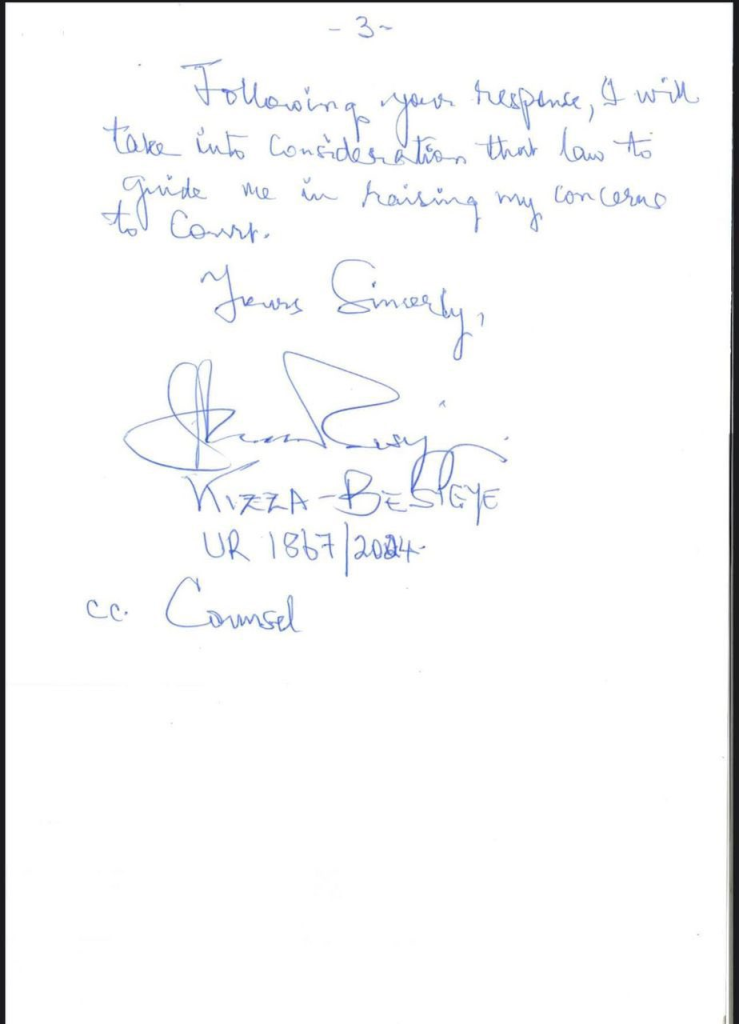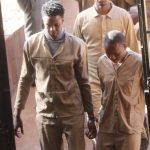Published on 03/10/2025
Dr. Kizza Besigye has petitioned the High Court from Luzira Upper Prison, contesting a directive by Justice Emmanuel Baguma that blocked him from addressing court directly during his treason trial.
In a handwritten letter, Besigye described the order as both unjust and politically loaded, arguing that silencing accused persons undermines fair trial rights.

“I find it strange and oppressive if I cannot raise a concern directly in open court,” Besigye wrote.
“If each time, a written submission has to be made and time fixed for your response, the case may never be concluded. Meanwhile, I remain confined in prison.”
He further demanded that the judge cite the law preventing him from voicing concerns in person: “I request you to point me to the provisions of the law that bar an accused person from raising concerns in court, touching their trial, during any audience with the judge, in the presence of their lawyers.”
Besigye, who is jointly facing treason charges with Hajj Obeid Lutale and Captain Dennis Ola, had attempted to speak in court on October 1 but was blocked by Justice Baguma, who insisted he could only address the bench through his lawyers.



Unlawful
His defence team, led by Kenya’s former Justice Minister Martha Karua, condemned the ruling as unlawful.
“There is absolutely no law in Uganda or internationally that bars Dr. Besigye from raising an issue directly with the court,” Karua said.
The episode has reignited debate over Besigye’s frequent clashes with the state and judiciary.
A four-time presidential challenger, he has often argued that legal proceedings against him are politically engineered to silence dissent.
“Being a person accused of a serious offence, I find it strange and oppressive if I cannot raise a concern directly in open court. If each time a written submission of the concern has to be made and time fixed for your response, the case may never be concluded. Meanwhile, I remain confined in prison,” said Besigye.
His latest letter reinforces that view, warning that denying him a voice in his own trial risks entrenching a precedent where opposition figures are reduced to spectators in cases that determine their liberty.
“Being a person accused of a serious offence, I must be able to raise matters of concern directly before the court,” Besigye wrote, adding that he would only comply with such restrictions once shown a clear legal basis.




